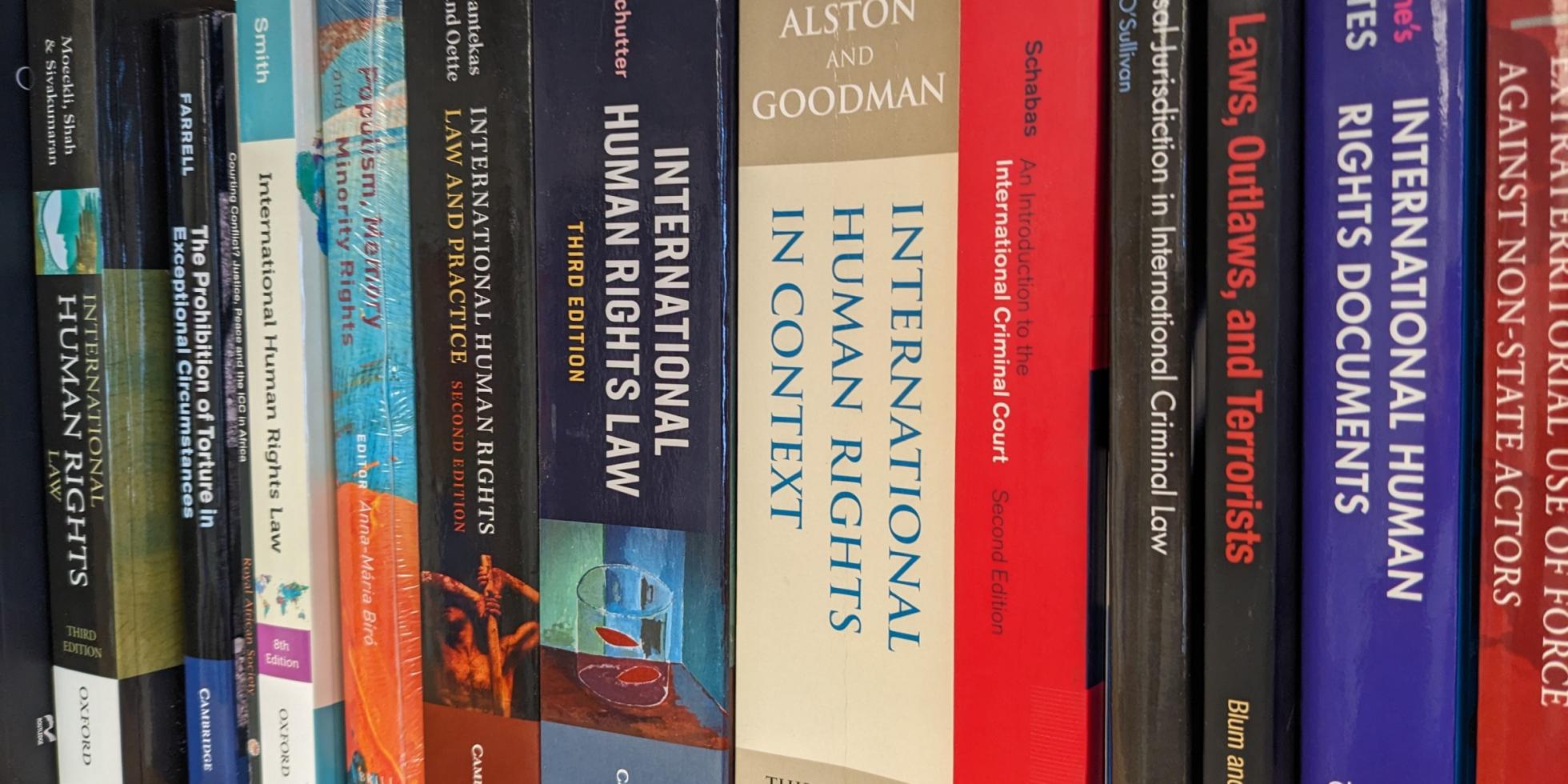The virtual human rights library brings together resources from multiple libraries and information services, both internal and external, to create an online hub dedicated to the study of human rights. This curation is unique in its interdisciplinary concerns and focuses on writings and research from social sciences, humanities, and law.
The virtual library is continually updated with the latest academic research in issue areas, as well as with relevant films, recorded conversations, and other forms of media.
Please Note:
The Virtual Library is usable by all visitors, but the hyperlinks to materials listed are for UChicago community members with a CNet ID and password.
Please direct feedback and suggestions to Kathleen Cavanaugh.
For technical assistance, email pozenhumanrights @ uchicago.edu.
Searchable Database
Click into the dropdowns to select the disciplines, keywords, and media type for your search, and then hit "Apply."
"'As you set out for Ithaka': Practical, Epistemological, Ethical and Existential Questions about Socio-Legal Empirical Research in Conflict,"
This is the story behind another story. Inspired by the anthropological practice of reflexivity, it traces some practical, epistemological, ethical, and existential questions behind a book based on empirical socio-legal research into international criminal law in situations of conflict. The...
"'Hypernudge': Big Data as a mode of regulation by design"
This paper draws on regulatory governance scholarship to argue that the analytic phenomenon currently known as ‘Big Data’ can be understood as a mode of ‘design-based’ regulation. Although Big Data decision-making technologies can take the form of automated decision-making systems...
"'No Humans Involved': An Open Letter to My Colleagues"
In 1992, amidst the riots the broke out after the acquittal of the officers that brutally beat Rodney King, Sylvia Wynter penned this open letter to her colleagues in academia. This letter highlights the classification of the case as “NHI”...
"A Jewish 'Nature Preserve': League of Nations Minority Protections in Nazi Upper Silesia, 1933–1937"
Under the guarantee of the League of Nations, Jews in most of Upper Silesia— an area encompassing nearly 1.5 million residents and around 10,000 Jews in 1933—were subject to special minority protections that barred Nazi discrimination on the basis of...
"A Public Sociology for Human Rights."
A public sociology that will tackle the public issues of today requires the transformation of sociology as we know it. This is the stirring message of this volume—at the heart of sociology must lie a concern for society as such...
"A Rose by Any Other Name? Rethinking the Similarities and Differences between Male and Female Genital Cutting"
In this article, we offer a critical examination of the tendency to segregate discussion of surgical alterations to the male and female genitals into separate compartments- the first known as circumcision, the second as genital mutilation. We argue that this...
"A Sociology of Human Rights"
This paper has two main objectives. One is to consider the central place of human rights in today's global order and the other is to articulate a theoretical framework that will make sociological sense out of current human rights discourse...
"A Survey on Bias and Fairness in Machine Learning"
With the widespread use of artificial intelligence (AI) systems and applications in our everyday lives, accounting for fairness has gained significant importance in designing and engineering of such systems. AI systems can be used in many sensitive environments to make...
"A Transnational Community of Pakistani Muslim Women: Narratives of Rights, Honor, and Wisdom in a Women's Education Project"
Using ethnographic data, this article explores how Muslim women teachers from low-income Pakistani communities employ the notion of “wisdom” to construct and perform their educated subjectivity in a transnational women’s education project. Through Butler’s performativity framework, I demonstrate how local...

